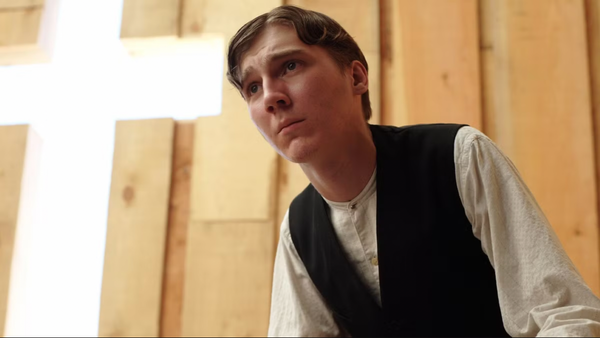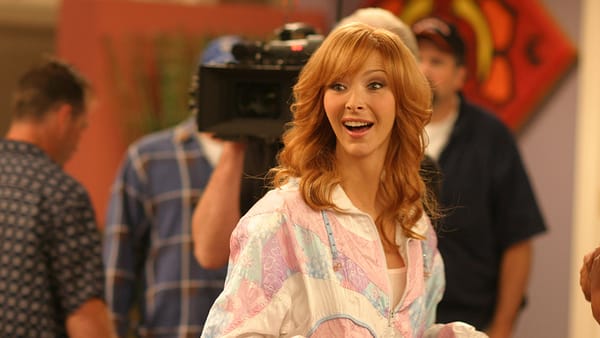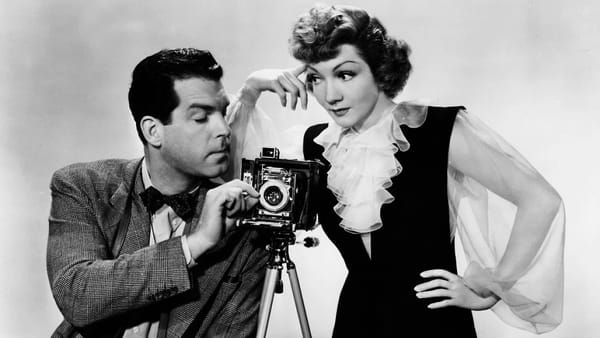Psycho. #58
Held hostage by TV.
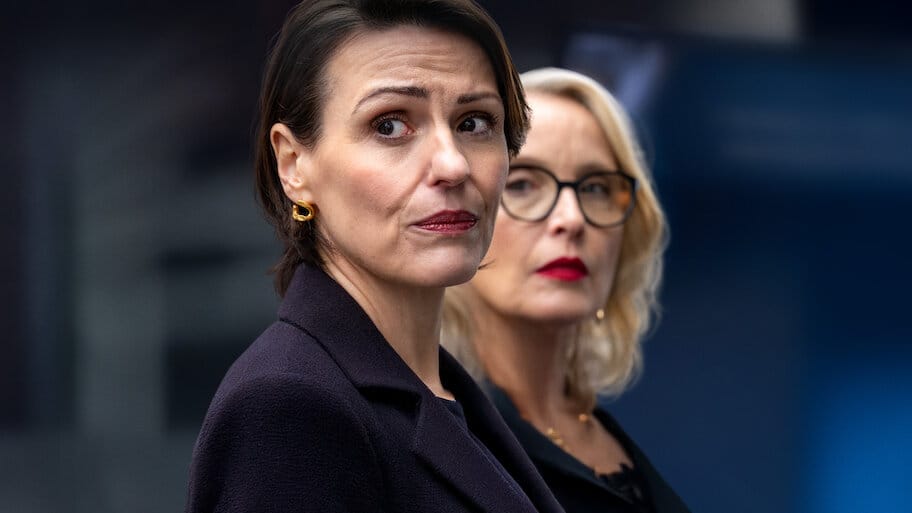

Hi Caspar, recently on Bluesky you said, “People nowadays are really bad at noticing when someone is a terrible actor. Not sure why that is, but standards for screen acting are fucking on the floor.” Could you expand on that (with I hope some terrible actor examples so I can feel either vindicated or indignant)? Agreed that John Goodman is one of the best. Thank you
—Another Oblivious Moviegoer
Hi Another Oblivious Moviegoer – I’ve spoken so much about what I consider to be the current plague in screen-acting that I have begun to bore my own damn self. I can summarise my position on this very succinctly for you, before we proceed to some examples together. My take: a perfect storm of digital filmmaking, streamer dominance, boxset culture, and at least one generation of actors that has now grown up with the internet and phone cameras, has conspired to chip away at the art of screen acting.
I won’t give examples of terrible actors (although I could!) but I would like to look further into the question of screen acting using as an example – if I may, and despite this column being focused on cinema rather than television – the recent television series Hostage, starring Suranne Jones and Julie Delpy as the UK’s prime minister and the president of France respectively, who have to come together to fend off some sort of security breach, bla bla bla. To me, a completely throwaway show such as this gives a pretty good measure of where things now stand, in terms of “product”/”content”, how we watch it and why, and the sort of acting that results from those considerations.
Send your questions anonymously to Caspar at this link, no personal information is collected.
To that pair of actors, first. Suranne Jones is a UK TV actor, Julie Delpy a film star. That statement can be interpreted however you like: you could read something sneery or derogatory towards the “lower” form of television if you fancy, or you could take it to mean that viewers are more aware, perhaps more fond, of Jones. But it’s above all a statement of fact: Suranne Jones got her big break performing on Coronation Street, the UK’s – and the world’s – longest-running television soap opera. Jones was a fan favourite on the show, racking up just short of 500 episodes over the course of 4 years, and winning two Best Actress prizes at the British Soap Awards.
Coronation Street, like Eastenders and Hollyoaks, shoots and releases a massive amount of content every week. For a few years now, there have been three hour-long episodes of Coronation Street aired every week, equating to 300+ episodes a year: that means that the shows have to be written, performed, directed, recorded, and edited very rapidly. This means that there’s little time for rehearsals, still less for second or third takes; I should imagine actors get their scripts pretty close to the shooting time and learn their lines the day beforehand. That means that the production of soaps – and by extension the type of acting they showcase – is radically different to the art of film-acting.
Julie Delpy is not just a film star, she’s a French film star. Her early CV, as she got started in arthouse cinema, reads like a who’s who of revered European film directors: Jean-Luc Godard, Leos Carax, Bertrand Tavernier, Carlos Saura, Agnieszka Holland, Volker Schlöndorff, Krzysztof Kieślowski. It doesn’t get much classier than those names; that’s a Juliette Binoche-level resume right there. Working with such great film directors, on movies that would have been years in the making, would have instilled in Delpy an approach to character at the absolute opposite to a training in soap operas: methodical, intellectual, heavily centred on the written word, and dependent on a director’s vision and style. Put it another way: Delpy might make two or three films in a given year, totalling a runtime equivalent to about two weeks’ worth of Corrie.
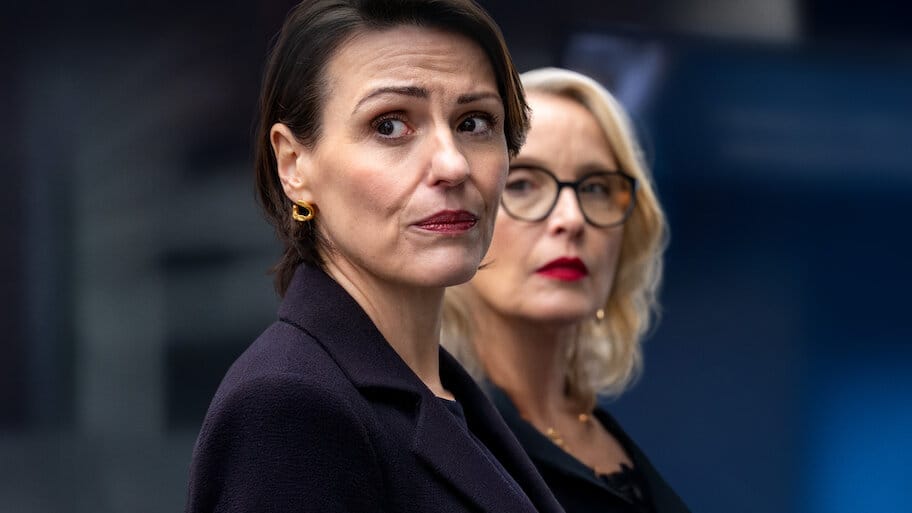
Now: what Delpy and her peers were not to know, was that TV would win. The television model for making stories quickly and – relatively-speaking – on the cheap would be picked up and run with by the streamers. So now, a movie star like Nicole Kidman will find herself in throwaway dreck like Netflix’s The Perfect Couple, a programme in which you can absolutely see the hallmarks of assembly-line filmmaking in a story that doesn’t make sense and which has been padded like a lesser drag queen, and in acting that is light, on the surface, under-rehearsed etc etc.
The same is now true of Delpy, who was perhaps never a virtuosic actor on a par with Isabelle Huppert, but who has always been very aware of how to wield her movie star persona and aura, how to hold a camera and project beauty, how to be consistently funny, how to work with artistic constraints (c.f. Richard Linklater’s long takes). Watch her in Hostage, however, and you see somebody essentially interchangeable with any TV actor, opposite a TV actor who isn’t doing very much but knows how to give just enough to draw a very thin approximation of a character. Delpy can’t be good in this stuff. Nobody can. Her character is called Vivienne Toussaint, for god’s sake.
A digression: when I was at university, my friend Katie and I co-wrote half of a Jilly Cooper-style bonkbuster together, set in the world of competitive ice-skating. Many horrible and sexy twists and turns ensued, including – I think – an abortion, a car accident, and a great deal of betrayal. The plucky heroine was called Fabienna Kernonsky, the sexy cad who broke her heart was named Donovan Kerrigan, and the icy French villain was Chantal Renicourt. Anyway, not to blow our trumpet but “Chantal Renicourt” would have been a much better name for Delpy’s conniving president of France than Vivienne Toussaint. I’m not sure any French woman has ever been called Vivienne??
Back to the show though. Delpy doesn’t get big close-ups; she doesn’t get beautiful costumes or lighting; no good writing for her to fall back on here. The thing is getting the story told, you see – and what’s more, you need to tell the story over and over to people who are looking at their phones instead. You can tell Delpy hasn’t had a great deal of experience with delivering heaps of exposition: she looks tired, and nervous. She clearly doesn’t believe in this shit. Meanwhile, the acting from everybody else is of a highly variable quality. Character is signified very quickly via costume (a Thatcheresque pussy-bow for the rightwinger, uncomfortable heels for the salt-of-the-earth leftwinger who is constantly being shown wincingly discarding her painful shoes, yay feminism), exposition (“You’re honest, and I know you will do the right thing”) and a couple of tiny touches thrown in here and there (the Prime Minister swears!). Suranne Jones is capable; you sense that, unlike Delpy, she does actually believe in this shit, or at least that she is committed to it. She is really trying to make a character out of these superficial signifiers. She goes big a couple of times, with mixed results. It’s more than the show deserves, though, and it’s telling about different approaches to contemporary acting. What is a paycheque job? What is a passion project? What do performers want? More of the same, or something different?
My hunch is that, now, we are all used to watching this type of thing, and that viewers are now completely at ease with this kind of shallow acting. Hostage isn’t the worst of it by any means, but it is part of a landscape where there is a profusion of stuff – and I sense that audiences and critics aren’t sceptical enough of ropey line readings, of superficial characterisation, of incohesive or incoherent performances, simply because these dominate our diets. In her review of Hostage, the Guardian’s Lucy Mangan claims that “everyone is terrific in this”, with “Jones doing her usual sterling work as the PM.” That is, I’m afraid, incorrect. At best, some actors in this are passable; others have nothing to do, or are terrible (any actor playing an angry teenage daughter will struggle on Netflix). I saw Lucian Msamati in Waiting For Godot a few months ago: brilliant there, extremely medium here. The format flattens individual talent.
As more and more actors keep coming to this style of acting, it becomes universalised, and stepping outside of it requires originality, force of character, and a conducive artistic set-up – because, of course, these traits bleed into cinema, which has had to adapt to hampering financial constraints. I don’t have a very positive answer for how to fight back, but at the very least we should all be aware of what’s going on.
Send your questions anonymously to Caspar at this link, no personal information is collected.

